

Discover more from Weapons and Strategy
President Vladimir Putin says that it might be possible to reach a deal with Ukraine based on the failed Istanbul Communique and taking into account recent territorial changes in Ukraine. The Istanbul Communique was dead by April, 2022. Could the deal be revived? Was Putin serious in suggesting it as a basis for a settlement with Ukraine?
We know a great deal more about the Istanbul Communique now. It was achieved at the time when Russia pulled its forces back from an attempt to surround Kiev, and when Russia had suffered early setbacks in its war with Ukraine. Both sides were ready to implement the deal, which required face to face further negotiations between Putin and Zelensky and a range of agreements on territorial issues that the talks in Belarus and Istanbul did not resolve. Ukraine was convinced to pull out of the deal, however, when its western allies, principally the UK and US, made it clear they opposed it.
The essence of the Istanbul deal was to make Ukraine a neutral state without any NATO presence in the country. Compensation for Ukraine's neutralization was to be given in the form of security guarantees by Russia, by members of the UN Security Council, and by others including Israel, Turkey, Poland, Italy, Germany and Canada.
Reportedly the security provisions were far more precise than Article V of the NATO Treaty, and (depending on the final form of an agreement) would have allowed each guarantor state to take action in Kiev's defense independently without requiring the assent of others. For its part Ukraine would accept a much smaller army with far fewer weapons, and no long range weapons.
The most sensitive territorial issue was Crimea. The deal said that the two sides would negotiate Crimea's future after 10 to 15 years, leaving open whether Crimea would remain territorially Russian or revert in some manner to Ukraine.
Contextually the essence of the deal was that Putin was willing to trade territory taken by Russian forces for neutralizing Ukraine and removing NATO's presence in that country.
The US was not willing to give security guarantees to Ukraine. Doing so would require a treaty and require that two-thirds of the Senate give its approval. But more importantly it would mean that NATO's expansion would be over and done with, and that Ukraine would get firmer security guarantees than any NATO country.

It is said that the US won't even consider negotiations over Ukraine's future now because the Russians are winning on the battlefield. Instead they say they will try and help Ukraine achieve some breakthroughs against Russia, while at the same time ramping up attacks on Russia's territory (with Biden's caveat that these attacks are not to include Moscow). Assuming massive US and NATO support, new weapons including fighter jets, perhaps the introduction of NATO troops, Washington thinks the Russians can be stopped in their tracks and some of their gains reversed. This would, in turn, open a path toward negotiations aimed at a cease fire which the Russians might then accept. A cease fire would give Ukraine time to replenish its military manpower and absorb new weapons, helped out by a limited NATO troop presence in the country. From this a temporary stalemate would turn into a future opportunity that might force the Russians to pull out of Ukraine altogether.
At present it seems unlikely that the Washington-inspired scenario will work, as the Russians still are advancing even though the pace of the Russian advance has slowed. Truthfully, though, no one knows for sure how solid Russia's leadership commitment to Ukraine actually is, and how costly the war is to Russia. In his recent meeting with journalists in St. Petersburg, Putin was asked why he does not speed up the effort in Ukraine before NATO sends weapons and troops to that country? Putin said that Russian troops are following a plan and would continue at the current pace. In short, he did not see any urgency in the war.
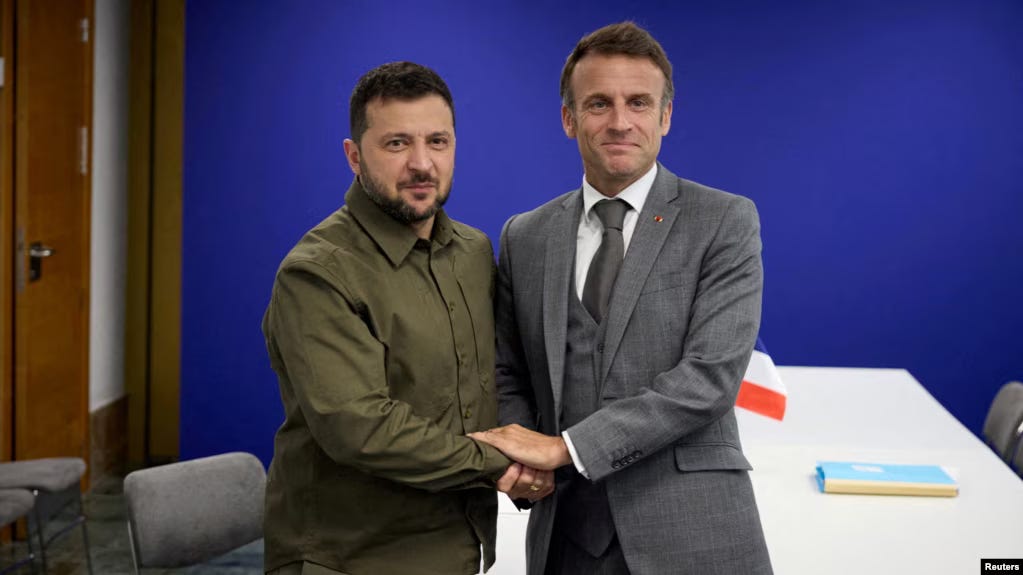
Since the failure of the communique some NATO countries have signed defense agreements with Ukraine, none of which commit them to send troops to defend that country. The US itself was unable to formulate a security agreement of its own that it thought it could sell to Congress, and apparently has dropped the matter for the time being.
Putin certainly knows that any deal with Ukraine that relies on security guarantees is unlikely to be acceptable to the US or even to many of the NATO countries. This means that the Istanbul Communique is not a viable model for a deal with Ukraine on the basis of security guarantees.
Almost certainly Putin knows there is little to no chance for any Ukraine deal at present. His talk about the Istanbul Communique does not lead to any available solution if a deal must include security guarantees. Moreover, the Russians have already annexed chunks of Ukrainian territory meaning that reconsidering those annexations would pose significant political challenges in Russia.
The recent EU elections in Europe and the upcoming US presidential contest suggest that there may be significant changes in support for Ukraine in the near future. Similarly, the Russians also have military options in Ukraine beyond the offensive they have launched in the Kharkiv area. However, there are no settlement proposals either on or off the table at the present time that could bring the war to an end.
One would have to conclude that Putin is not serious about a negotiated settlement for Ukraine, nor is the United States or NATO.
Negotiation talk is mostly smoke and there are no mirrors.

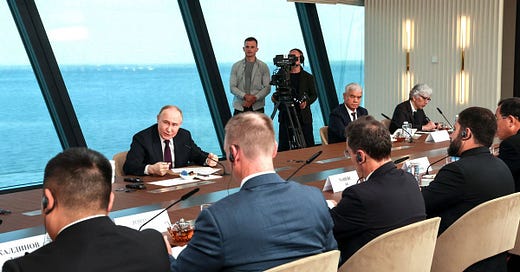



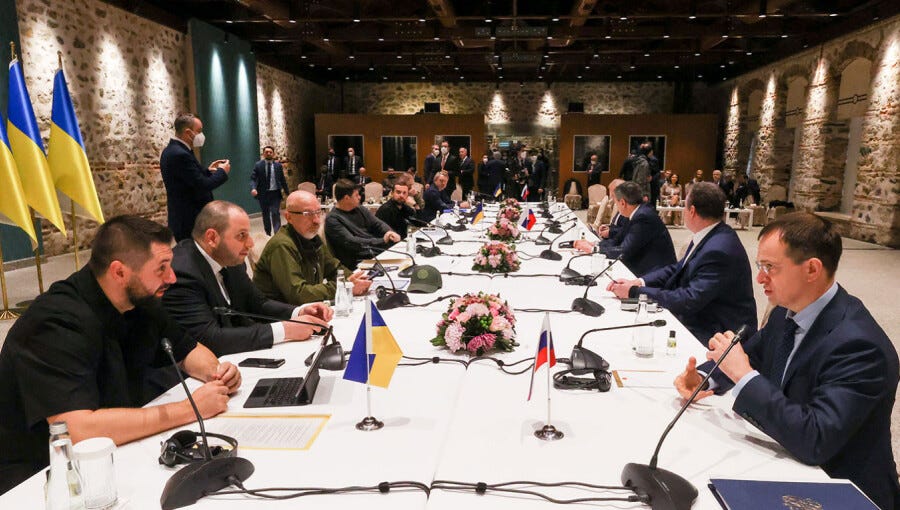





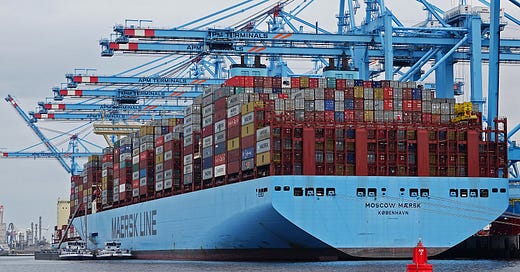

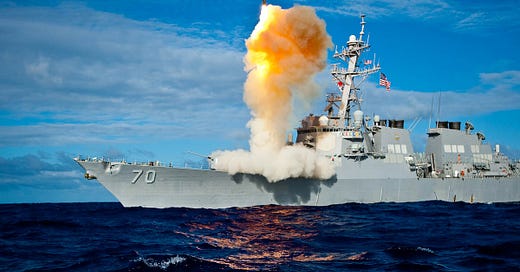

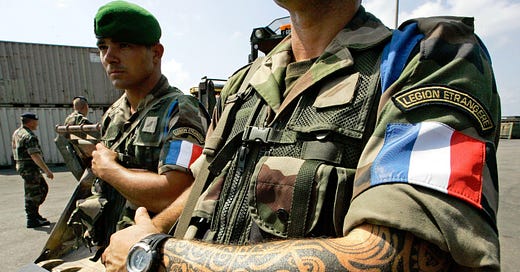

Please moderate your language. If you don't agree with something that is fine, but it is not permitted to say someone else's comments are idiotic.
It is abundantly obvious that Russia really does not want this war and never did, seeking at every opportunity a way to avoid fighting.
The West, by contrast, is absolutely itching for conflict.